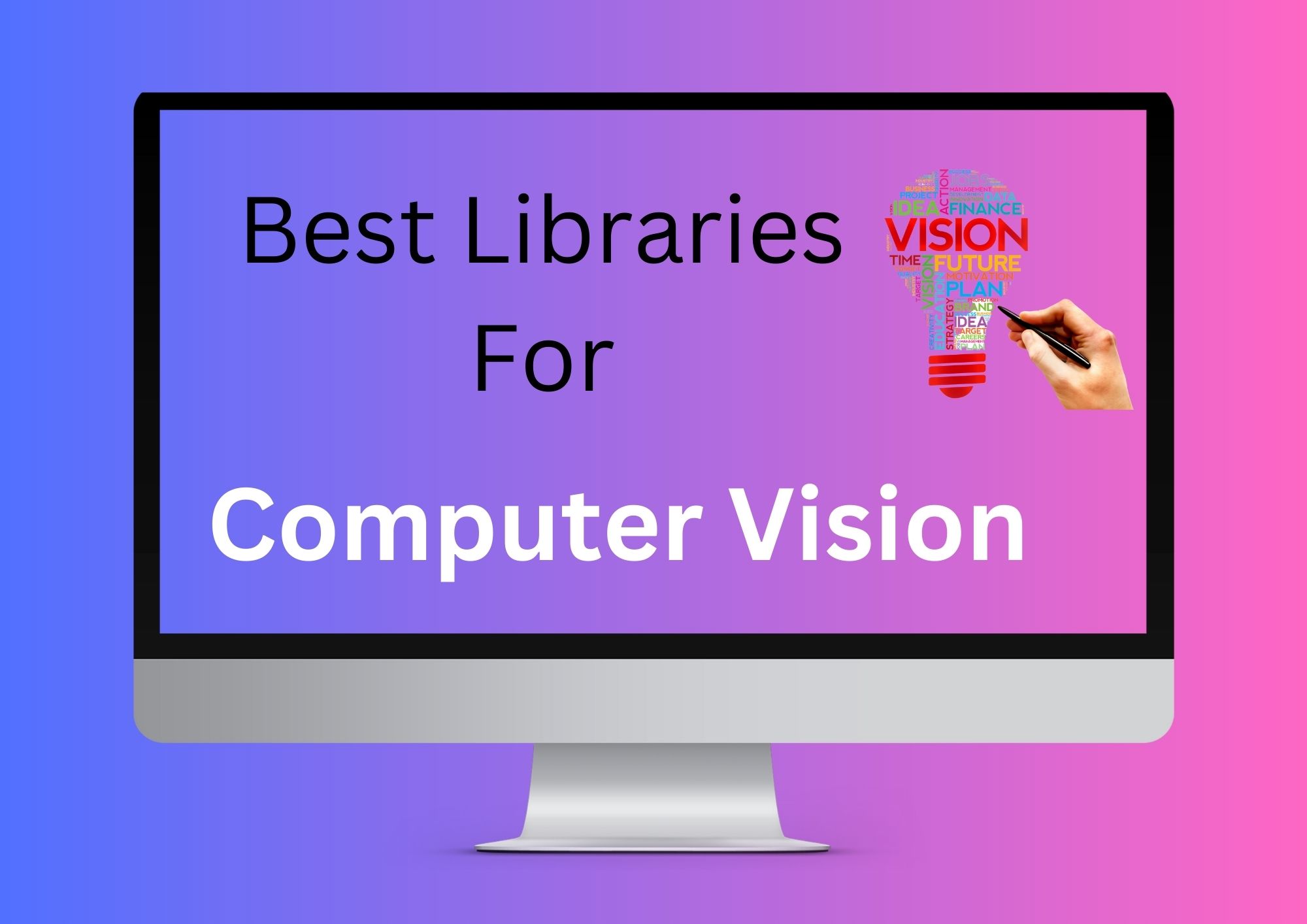
In this article, we’ll explore the top 10 computer vision libraries every developer should know, complete with real-life examples, code snippets, and facts and figures that’ll leave you feeling like a computer vision guru.
Table of Contents
OpenCV 
Considered the go-to library for computer vision, OpenCV (Open Source Computer Vision Library) is a must-know for every developer.
With support for C++, Python, and Java, it offers a wide range of features, including image processing, object detection, and machine learning algorithms. Plus, it’s compatible with Windows, macOS, Linux, Android, and iOS!
Example code for resizing an image using OpenCV (Python):
import cv2
# Read the image
image = cv2.imread('input.jpg')
# Resize the image
resized_image = cv2.resize(image, (new_width, new_height))
# Save the resized image
cv2.imwrite('resized_image.jpg', resized_image)
TensorFlow 
Developed by the Google Brain team, TensorFlow is an open-source machine learning library that excels in tasks like image classification and object detection.
TensorFlow supports Python, C++, and Java, and offers a user-friendly high-level API called Keras.
With TensorFlow, you can create powerful neural networks to solve complex computer vision problems.
PyTorch 
Created by Facebook, PyTorch is another popular library for machine learning and deep learning applications.
It provides a flexible and efficient platform for computer vision tasks, with a strong focus on GPU acceleration.
PyTorch’s dynamic computation graph feature allows for easy debugging and prototyping, making it a favorite among researchers and developers alike.
Caffe 
Caffe (Convolutional Architecture for Fast Feature Embedding) is a deep learning framework developed by Berkeley AI Research (BAIR) and the University of California, Berkeley.
It’s primarily used for image classification and convolutional neural networks (CNNs). Caffe boasts a large model repository, which makes it easy for developers to start experimenting with pre-trained models.
Dlib 
Dlib is a versatile C++ library that offers a wide array of machine learning and computer vision algorithms.
It includes support for object detection, face recognition, and image processing, among other features.
Dlib is known for its clean and easy-to-understand API, making it an excellent choice for developers new to computer vision.
Darknet 
Darknet is an open-source neural network framework written in C and CUDA. It is designed for real-time object detection and is the foundation for the popular YOLO (You Only Look Once) family of object detectors.
Darknet is lightweight, fast, and easy to install and use, making it a fantastic choice for developers working on computer vision applications requiring real-time performance.
Theano 
Theano is a Python library for efficiently defining, optimizing, and evaluating mathematical expressions involving multi-dimensional arrays.
It enables developers to efficiently implement deep learning models, and it can automatically optimize CPU or GPU computations to improve performance.
While Theano is no longer actively developed, it remains a valuable tool in the computer vision field.
SimpleCV 
SimpleCV is an open-source framework for building computer vision applications in Python. Its primary goal is to make computer vision tasks more accessible to developers with limited experience in the field.
SimpleCV offers a collection of high-level functions, making it easy to quickly develop applications for tasks such as image filtering, feature extraction, and object tracking.
Example code for loading and displaying an image using SimpleCV (Python):
from SimpleCV import Image
# Load the image
img = Image('input.jpg')
# Display the image
img.show()
YOLOv4 
YOLOv4 is the fourth iteration of the popular YOLO object detection system. Developed by Alexey Bochkovskiy, YOLOv4 offers significant improvements in speed and accuracy compared to its predecessors.
With support for TensorFlow and PyTorch, YOLOv4 is an excellent choice for developers looking to implement real-time object detection in their projects.
Accord.NET 
Accord.NET is a comprehensive .NET library for scientific computing, machine learning, and computer vision.
It offers a wide array of algorithms, including image processing, pattern recognition, and mathematical functions.
If you’re a developer working with C# or .NET, Accord.NET is a must-have library for your computer vision projects.
Thank you for reading our blog, we hope you found the information provided helpful and informative. We invite you to follow and share this blog with your colleagues and friends if you found it useful.
Share your thoughts and ideas in the comments below. To get in touch with us, please send an email to dataspaceconsulting@gmail.com or contactus@dataspacein.com.
You can also visit our website – DataspaceAI











